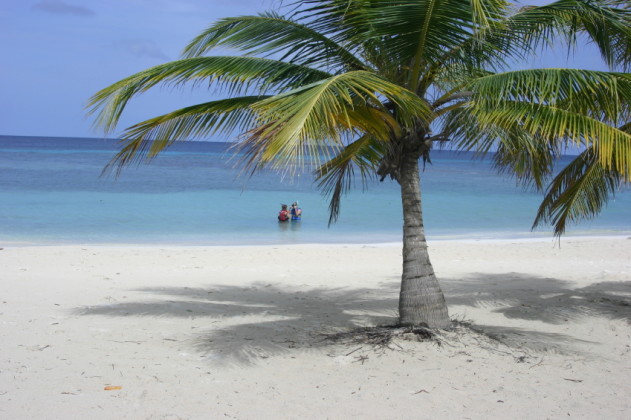When my car is inching along the freeway and people in nearby cars are stone faced, irritated, or in a texting frenzy, I wonder: What is this all for?
School teaching is the kind of work that doesn’t stop when you leave the classroom. You bring it home. Grading, planning, preparing. You get up in the morning earlier than you need to, go to school to make copies and put material on the board, and get ready for students who are half asleep and others who are buzzing with energy. There are staff meetings and parental correspondence. You have to be aware of struggling students, both academically and emotionally.
So I’ve decided to quit teaching for now and go to Hawaii to experience off-the-grid living.
I’ve always been a nature enthusiast. As a child growing up in San Diego, my family spent summers at the beach or on the lake in Tahoe and winters we skied. I was a Girl Scout. I went to summer camp. When I was 13, we moved to a mountain town in Northern Arizona. I went to college in Flagstaff, the city nearest the Grand Canyon. Then after a couple years of teaching, I moved to Los Angeles, the second most populous American city and the city with the largest freeway system.
So much concrete and car exhaust and traffic made my body feel weary at times. Two years ago I moved to Topanga Canyon, which is a lovely town in the Santa Monica mountains, and a welcome reprieve from the city. I love looking out my window to see trees and hills instead of traffic and concrete.
We are products of an anxiety-provoking environment, from the chemicals in our food, air, and daily products, to the economical and societal systems we are programmed to feed into in order to survive in the modern world. The disconnection from nature and our daily technological interactions deplete us. When my car is inching along the freeway and people in nearby cars are stone faced, irritated, or in a texting frenzy, I wonder: What is this all for?
I want to step away, take a little break from mainstream society. I want to immerse myself in nature. I am interested in the village approach to living.
On the big island of Hawaii, my boyfriend and I will do work exchange at a small, family style, egalitarian, intentional permaculture community.
We will do organic farming, camp on the land, use compost toilets, and drink water that comes from a rain catchment system. We will leave behind standard electricity, technology, and processed foods. My boyfriend and I have decided to take a hiatus from social media, which will be an interesting experiment. It might be tempting to check Facebook, as the premise of the social network creates a feeling of needing to keep up with everyone’s news and events, but I am not bringing my laptop to Hawaii and I’m going to delete the Facebook app from my phone. I’m only bringing my phone so I can use the camera on it, and in case we need to make a call. I imagine wanting to post photos of our adventure, but we will resist and post some after our trip.
Although we will be living more simply in this intentional community, there will be challenges. We will be without the luxuries of home life. Yet how many of those luxuries tie us down and deplete us? I look forward to the freedom of being Facebook-free and car-free, and absorbing the moist Hawaiian air, instead of the smog-filled, dry air of southern California.
We will be in Hawaii for six weeks: one month of work exchange in the community and two weeks of camping and travel. If we love it, we may extend our trip or return later on.
Although I don’t know what employment I will find when I get home, I trust that I will find something. I can possibly tutor for a few families, and I already have summer school teaching lined up. Though it might be a risk to quit my job and take off with no security upon my return, the idea of living completely off the grid is a risk worth taking.
We never know how much time we have left, so why not risk a little?
Brittany Michelson’s work is published in several literary journals including PoemMemoirStory Magazine and an anthology by Bona Fide Books.
Related Links:

